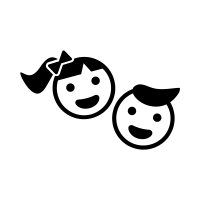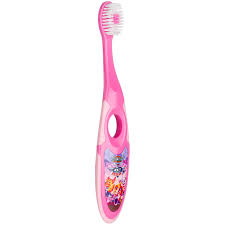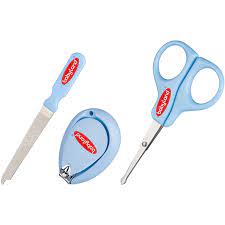Baby care products
Baby care products encompass a range of essentials for infant well-being. These include diapers, wipes, baby wash, and lotion for hygiene. Additionally, items like baby powder, diaper rash cream, and baby shampoo are commonly used. Safety is a priority with baby-friendly laundry detergents and bottle sterilizers.
For feeding, formula or breast pumps may be essential. Baby monitors and thermometers aid in monitoring health, while soft blankets, onesies, and pacifiers contribute to comfort. Selecting reputable brands and considering a baby's sensitive skin are crucial aspects when choosing these products.
You should use baby products when caring for your infant's specific needs. For example, use gentle baby wash and shampoo during bath time, opt for mild laundry detergents for their clothes, and apply diaper rash cream when needed. Baby products are designed to cater to the delicate nature of an infant's skin and overall well-being. Always follow the product instructions and consult with pediatricians if you have concerns or questions about when and how to use certain baby care items.
Opt for mild and hypoallergenic laundry detergents designed specifically for babies. Look for products that are free from harsh chemicals, dyes, and fragrances to minimize the risk of skin irritation. Some popular brands offer baby-friendly detergents that are gentle on sensitive skin. Always check the product labels for "baby" or "hypoallergenic" indications. If your baby has any skin sensitivities or allergies, consider consulting with a pediatrician to choose a detergent that best suits your baby's needs.
While baby care products and beauty/personal care products share similarities, they are distinct categories tailored for different needs. Baby care products focus on the specific requirements of infants, addressing the delicacy of their skin and unique care needs. These include items like gentle shampoos, baby wash, and mild detergents.
On the other hand, beauty and personal care products cater to adults and may include a broader range of items such as cosmetics, skincare products, and toiletries designed for various skin types and preferences.
While there may be some overlap in ingredients, the formulations and purposes of these products differ, reflecting the specific needs of babies versus adults. Always choose products that align with the intended age group and individual requirements for optimal results.
baby care products are generally allowed to be exported, but specific regulations and requirements vary between countries. Manufacturers and exporters must comply with the regulations and standards set by both the exporting and importing countries. These regulations often include safety standards, ingredient restrictions, and labeling requirements to ensure the well-being of infants and compliance with local laws.
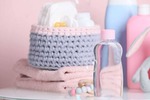
It's crucial for exporters to be aware of and adhere to the relevant regulations and certifications to ensure the smooth export of baby care products. Additionally, staying informed about any changes in regulations is essential for maintaining compliance with international trade standards.
Baby care products are typically exported through established channels in the global supply chain. The process involves several key steps:
1. Regulatory Compliance:Ensure that the products meet the regulatory standards and requirements of both the exporting and importing countries. This includes adherence to safety standards, labeling regulations, and any specific requirements for baby care items.
2. Manufacturer and Supplier: Products are manufactured by companies compliant with quality and safety standards. Manufacturers or suppliers may have distribution networks or partnerships with export companies.
3. Export Documentation:Prepare the necessary export documentation, including invoices, packing lists, certificates of origin, and any required permits or licenses. Compliance with customs requirements is crucial.
4. Shipping: Baby care products are shipped using various modes of transportation, such as sea freight, air freight, or land transportation, depending on the destination and urgency. Proper packaging to prevent damage during transit is essential.
5. Customs Clearance: Products go through customs clearance procedures at both the exporting and importing countries. Customs officials verify that the shipment complies with regulations and that the necessary documentation is in order.
Throughout this process, communication with freight forwarders, customs agents, and compliance with international trade regulations is essential to ensure a smooth and legal export of baby care products.
Exporting baby care products may be subject to quotas in some cases, depending on the trade agreements and regulations between the exporting and importing countries. Quotas are restrictions on the quantity of certain goods that can be imported or exported within a specified period.
Quotas can be imposed for various reasons, including protecting domestic industries, ensuring product safety, or addressing trade imbalances. If there are quotas on baby care products, exporters need to adhere to the allocated limits to avoid potential trade issues.
It's important for exporters to stay informed about any existing quotas or trade restrictions in the target markets and comply with them to ensure a smooth and lawful export process. The specifics of quotas, if applicable, would depend on the trade agreements and policies between the countries involved in the export.
Exporting baby care products involves adherence to various rules and regulations to ensure product safety, compliance with standards, and legal trade practices. Here are some general rules to consider:
1. Regulatory Compliance: Ensure that your baby care products comply with the regulatory standards of both the exporting and importing countries. This includes safety standards, labeling requirements, and any specific regulations for baby care items.
2. Quality Standards:Follow quality control measures to ensure that the products meet international quality standards. This involves using safe ingredients, proper manufacturing processes, and adherence to product specifications.
3. Documentation:Prepare accurate and complete export documentation, including invoices, packing lists, certificates of origin, and any required permits or licenses. Ensure compliance with customs requirements and regulations.
4. Labeling and Packaging: Adhere to labeling regulations in the target market. Clearly label ingredients, usage instructions, and safety precautions. Packaging should be secure to prevent damage during transportation.
5. Product Registration: Some countries may require product registration before allowing imports. Check if your baby care products need to be registered with the relevant authorities in the importing country.
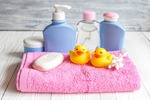
It's crucial to conduct thorough research on the regulations of the specific countries you plan to export to and seek guidance from trade experts or legal professionals to navigate the complexities of international trade rules for baby care products.
Baby care products encompass a wide range of items designed to meet the specific needs of infants and promote their well-being. Some essential baby care products include:
1. **Diapers:** Disposable or cloth diapers for maintaining hygiene and preventing leaks.
2. **Baby Wipes:** Soft, gentle wipes for cleaning the baby's skin during diaper changes or for general cleaning.
3. **Baby Wash and Shampoo:** Mild and hypoallergenic formulations for bathing babies, often designed to be tear-free.
4. **Baby Lotion:** Moisturizers formulated for delicate baby skin to prevent dryness.
5. **Diaper Rash Cream:** Provides a protective barrier to prevent and soothe diaper rash.
6. **Baby Powder:** Used for keeping the baby's skin dry and preventing irritation.
7. **Baby Clothes:** Soft and comfortable clothing designed for infants, including onesies, sleepers, and hats.
8. **Baby Blankets:** Soft and cozy blankets to keep the baby warm.
9. **Baby Bottles and Formula:** For feeding infants who are not exclusively breastfed.
10. **Baby Food:** Nutrient-rich and age-appropriate food options for introducing solids.
While baby care products and beauty/personal care products share similarities, they are distinct categories tailored for different needs. Baby care products focus on the specific requirements of infants, addressing the delicacy of their skin and unique care needs. These include items like gentle shampoos, baby wash, and mild detergents.
baby care products are generally allowed to be exported, but specific regulations and requirements vary between countries. Manufacturers and exporters must comply with the regulations and standards set by both the exporting and importing countries. These regulations often include safety standards, ingredient restrictions, and labeling requirements to ensure the well-being of infants and compliance with local laws.

Throughout this process, communication with freight forwarders, customs agents, and compliance with international trade regulations is essential to ensure a smooth and legal export of baby care products.

It's crucial to conduct thorough research on the regulations of the specific countries you plan to export to and seek guidance from trade experts or legal professionals to navigate the complexities of international trade rules for baby care products.
FAQs
How long do baby products last?
Expiration dates vary, but most baby products, like diapers and wipes, have a shelf life of 2-3 years. Always check the packaging for specific details.
What are 5 things to take care of a baby?
1. Provide a safe environment. 2. Attend to their basic needs (feeding, diapering). 3. Ensure proper hygiene (bathing, clean clothing). 4. Monitor health and seek medical advice when needed. 5. Offer love, attention, and stimulation for development.
Why are baby care products important?
Baby care products are crucial for ensuring the well-being of infants. They are specifically designed for their delicate skin and unique needs, promoting hygiene, comfort, and safety in various aspects of care.
How often should you clean baby items?
Clean baby items regularly to maintain hygiene. Items like bottles and pacifiers may need daily cleaning, while toys, bedding, and clothing should be washed periodically, especially if they come into contact with spills or dirt. Follow product-specific guidelines for best practices.


